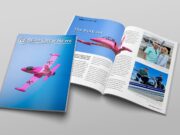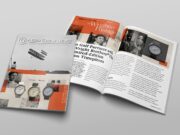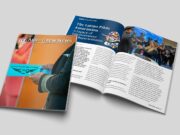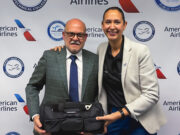
Of all the so-called sophisticated investment strategies that exist, I’m not sure any are as effective as building a solid foundation for our money spending.
The way we spend our money reflects our belief system and values. For example, if I value time together as a family and with kids, purchasing a backyard pool may be a good use of my money. On the other hand, if I purchase items solely because I can afford them and because that’s what other people are buying, then the items I purchase may make me more unhappy than if I hadn’t purchased them.
This is the non-mathematical theory behind the economic concept of Opportunity Cost. Chances are, we are all familiar with the idea that if we spend money or invest in one area, the opportunity cost must always be considered. For example, before I purchase the monster truck I’ve always wanted, I must consider the opportunity I missed by not putting my money in an investment or savings account that may be able to yield four or five percent. After analyzing the opportunity cost, the monster truck is much more expensive than I may have originally thought.
The often-overlooked part of Opportunity Cost is the emotional component of our spending. Every time we decide to spend or invest our money in something, we must consider the emotional cost as well. That emotional cost comes from more stress due to budgeting constraints. There may possibly be more discord in a marriage because one person is a saver, and the other is the spender.
What does this look like in real life?
As a financial adviser (and former airline pilot), I get the opportunity to learn many valuable lessons from all our clients. Many of our client families have done exceedingly well at saving money, not only in their retirement accounts but also in their checking, savings and other non-retirement accounts. When I ask them how they can save more than their retirement needs, they simply respond with comments like these:
- “We only spend on things that we know are going to bring us tremendous value.”
- “We just don’t need to spend that much in order to enjoy our friends and family.”
- “We learned that spending money on items just because someone else is doing it actually makes us unhappy.”
- “We spend lavishly on the things that bring our family joy and we skimp on everything else that doesn’t.”
What I’ve learned from these informal interviews is that it’s not always about a fancy budgeting system. It’s not about using your superhuman willpower to forgo buying cool stuff. In fact, buy the cool, fun stuff! But make sure you only buy the cool, fun stuff that truly aligns with your values.
So, how do we make great spending decisions considering the emotional and mathematical components of Opportunity Cost?
I came across a great article the other day by Joshua Becker at www.becomingminimalist.com.The article, titled “It’s better to drive an old car than be burdened by new debt”, describes how the well-known economic principle of Opportunity Cost can help reduce overspending, allow someone to save more for the future and reduce stress around spending habits.
Definition of Opportunity Cost from the article: “In other words, with every purchase we make, there are sacrifices we assume – alternatives that we must forgo. Every dollar spent on an item is one less dollar that could have been spent somewhere else. Of course, it is also a principle that carries weight beyond mere dollars. Because sometimes the purchases we make require us to forgo alternatives that are bigger than dollars and cents. … In this (new car) scenario, I had to give up something potentially more valuable than dollars. I had to sacrifice calm, peace, financial freedom, and the satisfied feelings of knowing the car I drive is fully paid for.”
Below are five ways to help develop a healthy mindset for spending that will help you build wealth. But first, why might you consider taking these steps? What is the reward?
One of my favorite speakers, authors and podcasters, Ed Mylett says to “choose your hard.” I love this idea because we get to choose to make the difficult now; workout, eat right, etc. Or we can ignore the hard decisions now and suffer the consequences later. When it comes to spending your hard-earned dollars, choose to do the hard things now so it won’t be really hard in the future when you wish you were less stressed about money, more prepared to retire early from the airlines, or God forbid, didn’t seek that divorce due to financial stress.
Five ways that work against us and using the economic principle of Opportunity Cost to increase financial peace of mind and happiness:
- Be on guard against “consumerism” and know how it clouds our judgement.
If billions of dollars were on the line for a corporation you owned, what lengths would you go to get people to buy your stuff? My answer would be, there are no limits.
I personally believe that businesses and corporations are wonderful, they solve problems and make our lives better. However, they are also very good at convincing me that I need that new truck to be truly happy. Seriously, I’m convinced!
Advertisements are powerfully designed to influence how you feel about yourself. One of the most effective tools for advertisers in our culture is to foster jealousy and envy among us. Our faulty definition of success allows marketers to pander to our weaknesses while they define our success. New car, new boat, bigger home, etc.
For example, I didn’t know that if I owned a Hyundai Sante Fe that I could take my family on a grand adventure in the mountains, and we would all feel like powerful Vikings! Conquer the Weekend | Vikings | The All-New 2024 SANTA FE | Hyundai (youtube.com)
No action required, just be aware that there is a battle being waged and no psychological weapon is off limits! - Comparison is the thief of joy! Aka Envy.
President Theodore Roosevelt said it best, “Comparison is the thief of joy!” If you do not know what your own values are, you will default to those of your neighbor. We always compare the worst of what we know about ourselves to the best assumptions we make about others.
Take the time to discover your personal and family values. It takes intentionality and effort but remember to “choose your hard.” - The “A” in the WRAP Process
Chip and Dan Heath wrote a great book titled, Decisive. In the book they wrote about how we all have a faulty process for decision-making. In fact, in one part of the book they compared the decision-making of Fortune 500 CEOs to that of a teenager. Those in the airlines have witnessed that phenomenon firsthand!
They suggest a framework for decision-making called WRAP. WRAP is an acronym that stands for: Widen your options, Reality-Test Assumptions, Attain Distance Before Deciding (wait), Prepare to be Wrong.
When it comes to making spending decisions, the “A” in WRAP is very powerful – attaining distance before deciding. Wait and see if you still want that mountain cabin in six months. Is it still on your mind? This concept is akin to delayed gratification. Remember layaway? I do. That concept is long gone and not even a consideration in purchasing decisions. I recommend googling layaway and adopting the concept to help with a healthy mindset for spending and building wealth! - Practice gratitude.
There’s power in gratitude. Every institution from science to religion produces mounds of evidence about the mental and physical health benefits of practicing gratitude. If you routinely write down what you’re grateful for you will soon realize what you really need to be fulfilled and happy may be right in front of you.
Check out this great article about gratitude from Harvard Health Publishing: Giving Thanks Can Make You Happier.
“In positive psychology research, gratitude is strongly and consistently associated with greater happiness. Gratitude helps people feel more positive emotions, relish good experiences, improve their health, deal with adversity, and build strong relationships.” (Excerpted from the article.) - Work towards contentment.
I intentionally used the word “work” in this heading because I believe that’s what we must do to become content. It rarely happens automatically.
I also believe that contentment is a powerful state of mind that is the pinnacle of not just financial achievement but success in life as well. Another concept I’ve learned is that just because a person has more money, they may not be more content.
The best definition I could find of contentment is very simple; contentment is the state of being happy and satisfied. It is the opposite feeling of, “If only I made more money, had a bigger house, a nicer car, etc. …” Furthermore, contentment does not mean you must be happy with the status quo. It doesn’t mean that you can’t strive for a higher income and nicer things. In fact, it is normal and healthy to be content yet not complacent at the same time.
Finally, budgeting expert Dave Ramsey says it best in his book, The Money Answer Book: Quick Answers to Your Everyday Financial Questions. Author Dave Ramsey says that the most important financial principle is contentment.
“You can get out of debt, save money, and get on a budget, but until your intellect forces your emotions and your spirit to accept that STUFF does not equal CONTENTMENT, your finances will always feel stressed.”
One last recommendation; read the oldy-but-goody, “Millionaire Next Door” and listen to and/or read anything by Ramit Sethi
Hopefully, you found this article interesting and helpful. If you have any questions, contact us at 865-240-2292 or [email protected].
Also, please tell us if we can help you on your journey to financial peace and prosperity! Click here to sign up for our newsletter or click here to schedule some time to chat about your circumstances in more detail. Also, check out our Pilot Money Guys podcast where we regularly discuss these types of financial topics along with some fun airline news updates and interesting guest interviews, even with the publisher and founder of Aero Crew News – Craig Pieper!
Leading Edge Financial Planning LLC (“LEFP”) is a registered investment advisor. Advisory services are only offered to clients or prospective clients where LEFP and its representatives are properly licensed or exempt from licensure. For additional information, please visit our website at www.leadingedgeplanning.com.
The information provided is for educational and informational purposes only and does not constitute investment advice, and it should not be relied on as such. It should not be considered a solicitation to buy or an offer to sell a security. It does not take into account any investor's particular investment objectives, strategies, tax status, or investment horizon. You should consult your attorney or tax advisor.
The views expressed in this commentary are subject to change based on market and other conditions. These documents may contain certain statements that may be deemed forward-looking statements. Please note that any such statements are not guarantees of any future performance, and actual results or developments may differ materially from those projected. Any projections, market outlooks, or estimates are based upon certain assumptions and should not be construed as indicative of actual events that will occur.
All information has been obtained from sources believed to be reliable, but its accuracy is not guaranteed. There is no representation or warranty as to the current accuracy, reliability, or completeness of, nor liability for, decisions based on such information, and it should not be relied on as such.
















































